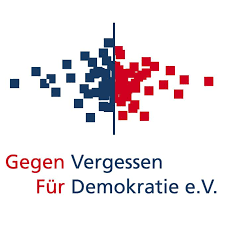Normality and Crisis: Memories of Everyday Life in Syria as a Chance for a New Start in Germany
Directorate: PD Dr. Katharina Lange
Normality and Crisis: Memories of Everyday Life in Syria as a Chance for a New Start in Germany is a joint research project based at ZMO with civil society partners from Berlin and Brandenburg. The project is funded by the Federal Ministry of Education and Research(BMBF) for a period of three years (February 2018 - January 2021).
The project investigates the notions of societal ‘crisis’ and its conceptual Other, ‘normality’, from the perspective of Syrian refugees in Germany. The refugees’ past experiences in Syria inform their expectations for the future and are thus greatly significant for their integration into German society: How do they conceive of societal ‘normality’, based on their previous experiences in Syria? And how can these experiences be taken into account when developing strategies for working with refugees?
Based on an extensive collection and archiving of biographical narratives, the project documents and analyses memories of everyday life in Syria until 2011/2012. The research focuses on two themes; first, the conviviality of ethnically and religiously distinct societal groups and, second, experiences of and encounters with state authority.
Researchers, refugees, and (civil as well as state) actors who work with refugees will exchange views about the research results in a series of interactive workshops. Building on that, they will discuss challenges for the refugees settling into German society and jointly develop suggestions for how to facilitate an easier integration in Germany. These results will be used to develop training units and different media which will be disseminated to actors working with refugees.

Subprojects
Paper Trails and Dislocated Bureaucracies
Veronica Ferreri
“a passport is more important than the man who carries it. The man is just a kind of mechanical device for carrying the passport from
country to country.”
Bertolt Brecht, Conversations in Exile
This project aims to examine Syrian official documents and the work of the Syrian bureaucracy to excavate past experiences of citizenship in Syria. In the context of migration and displacement, the significance of official documents becomes prominently visible as they concretely allow people to have a legally-valuable (and recognised) life. Nevertheless, understanding this prominence also requires a critical engagement with the life and journey of these papers across time and borders. Thus, the research intends to look at the historiticy of bureaucratic and legal documents possessed by Syrians living in Berlin and Brandenburg to question the meanings attributed to these papers and the relationship between Syrian state and its citizens.
The project interrogates the ways through which documents are obtained, possessed, retrieved and, sometimes, lost by Syrians to grasp the life (and power) of these documents. What is the relationship between a paper and its holder? How is this relationship shaped by and, simoultaneosly, informs specific experiences of citizenship inside Syria? By answering these questions, the project also aims to unearth the complexities of the state/citizens´s relationships and the modalities through which Syrians navigate(-d) the delicate and arbitrary terrain of bureaucracy. In doing so, the project aims to reflect on the nature of the Syrian bureaucracy—and its archives—and how administrative apparatuses are imbricated with other modalities of state power such as laws, violence, disciplines, and iconography.

At Home in Aleppo. Experiences and Memories
Lisa Jöris
At least since 2012 Aleppo is considered a divided city: in the course of the war a big part of it was controlled by oppositional forces for several years whereas the other part remained in the hands of the Syrian government. At the same time, Aleppo is famous for its diversity and heterogeneity before the outbreak of the war: a multitude of ethnic and religious groups called the city their home. Different districts were known to be Kurdish, Armenian, Christian, conservative, liberal, etc. Against this background, this project investigates conviviality in the second biggest city of Syria before 2011. The focus lies on the topic of “Housing”. How did Aleppinians find and look for housing? What influences facilitated or complicated their moving to a certain district? Which resources were to be found in the social and built environment there?

Conviviality in Homs between Space, State Institutions and Interconfessionality: Schools as an Interactive Shared Space
Investigator: Inana Othman
The project engages with dynamics of conviviality and social boundary-making in the city of Homs before 2011. These dynamics are examined as emerging in a field of tension between state institutions, everyday practice and interconfessionality. Thus, the project focuses on the ambivalent role of the school as a space of encounter, but also of state discipline and authority.
By conducting narrative interviews with people from Homs living in Berlin and Brandenburg, the project asks how pupils, parents and teachers have experienced state schools as spaces of encounter between different social and confessional groups, and where they have experienced limits of these encounters. The project foregrounds the contradictions between state and/or Ba’athist rhetoric and experiences of everyday life. While political rhetoric as well as school curricula and textbooks systematically and officially propagated the “national identity” and the “unity and equality of all Syrians” at school, in particular through the mandatory qaumiyya (“national education”) lessons, residents of Homs experienced an urban space that was largely divided along confessionalist lines. Hence the project asks the following questions: How did people experience school (including the curriculum as well as teaching and learning practices) as a state organized, organizing and disciplining “space and institution”? How did the experience of being schooled impact lived practices of conviviality between different ethnic, confessional and social groups in Homs before 2011?

Cooperation Partners:
 
 
 

Funding: 

|